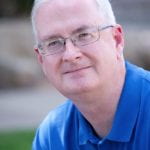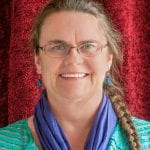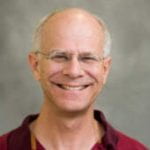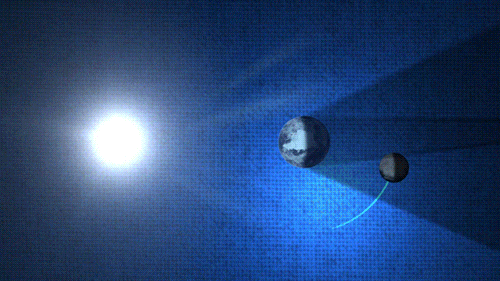
March 22-23, 2024
@ the LBJ Student Center: Texas State University
Featured Plenary Speakers
Karen Lange — “Climbing paths through trees”
Abstract: You can make a simple family tree by starting with a person at the root and then adding two branches for her parents, and then adding two branches for the parents of each of her two parents, and so on. Such a family tree is an example of a binary tree because each level of the tree has at most two branches. We’ll see that every binary tree with infinitely many nodes has an infinite path; this result is called Weak Kőnig’s Lemma. But just because we know a path exists, doesn’t mean we can find it. Given Weak Kőnig’s Lemma, it’s natural to ask whether we can compute a path through a given binary tree with infinitely many nodes. It turns out the answer to this “Path Problem” is “no”, so we say that the problem is not “computable”. But then what exactly is the computational power of this Path Problem?
Using the Path Problem as a test case, we will explore the key ideas behind taking a “computable” perspective on mathematics (over an “existence” one) and describe an approach for measuring the computational power of mathematical problems. We’ll see that the computational power of problems varies widely and studying problems’ power helps to illuminate what really makes problems “tick”.
This talk will highlight ideas from graph theory, theoretical computer science, and logic, but no background in any of these subjects is necessary.
About Karen Lange (Wellesley College) – MAA Section Lecturer Series (American Women in Mathematics) speaker. Karen Lange is the Theresa Mall Mullarkey Associate Professor of Mathematics at Wellesley College. In her research, she studies the “balance scales” used to calibrate computational information and applies these tools to measure the difficulty of algebraic problems. She’s also passionate about community-building and inclusion in mathematics, and she teaches a seminar on writing about mathematics for the public. She earned her undergraduate degree at Swarthmore College and her doctoral degree at the University of Chicago, and she completed an NSF Postdoctoral Fellowship at the University of Notre Dame
 David Hendricks — “The Texas Section at 104”
David Hendricks — “The Texas Section at 104”
About David Hendricks (Abilene Christian University) – longtime Treasurer of the Texas Section
 Jennifer Quinn — “Lessons That Really Count”
Jennifer Quinn — “Lessons That Really Count”
Abstract: Reflection is an important practice to make sense of and grow from any experience—big or small. Whether attending a meeting, teaching a class, writing an article, leading an organization, or adapting to a pandemic, there are lessons to be learned. For this talk, I take stock of some important lessons inspired by my work in combinatorics.
About Jennifer Quinn (University of Washington–Tacoma) – she has held many positions of national leadership in mathematics including President of the MAA, Executive Director of the Association for Women in Mathematics and previously for the MAA: co-editor of Math Horizons, Second Vice President, Chair of the Council on Publications, and Officer-at-Large on the Board of Directors. She received a 2007 Haimo Award for Distinguished College or University Teaching and a 2006 Beckenbach Book award for Proofs That Really Count: The Art of Combinatorial Proof, co-authored with Arthur Benjamin. As a combinatorial scholar, Jenny thinks that beautiful proofs are as much art as science. Simplicity, elegance, transparency, and fun should be the driving principles. She strives to bring this same ethic to her classroom, administrative work, and professional service.
 Max Warshauer —“Inspirations in Teaching and Lessons Learned”
Max Warshauer —“Inspirations in Teaching and Lessons Learned”
Abstract: In this talk, I will begin by discussing various goals for teaching and how these can align or not with the needs of the students. At the heart of this discussion is what teaching is all about and the possibilities one has to engage students in meaningful ways that excite and inspire students not only in mathematics but in other areas as well. Teaching is a complex endeavor and there is no one right way. I will describe various successes and challenges I have had in teaching. The rewards from teaching are not just explaining new ideas, but in empowering and inspiring students to overcome obstacles and solve new problems that they might never have thought possible.
About Max Warshauer (Texas State University [Regents’ Professor]) — 1999 Texas Section of the MAA Teaching Award Recipient, named one of 24 “Superheroes of Mathematics” by MAA President Michael Dorff in his 2021 retiring address, and holder of numerous other notable teaching awards (see the link).
Meeting Schedule
Friday- March 22, 2024
| Time | Activity | Location |
|---|---|---|
| 10:30 am – 5:00 pm | Registration | LBJSC Grand Ballroom Pre-Function Lounge |
| 11:00 am – noon | Section Executive Council meeting | LBJSC 3-21.1 |
| 11:30 am – 12:30 pm | Pizza Party | LBJSC Grand Ballroom |
| 12:30 pm – 2:50 pm | Calculus Bowl link: Participating teams | LBJSC Grand Ballroom |
| 12:30 pm – 2:50 pm | Project NExT | LBJSC 3-21.1 |
| noon – 2:50 pm | Texas State Math Research Seminars: (Accessible topics presented by NSF Career Grant awardees) | LBJSC 3-21.3 (details here) |
| noon – 2:50 pm | Special Session on Inquiry Teaching and Learning in Mathematics | LBJSC 3-21.2 (details found at this link) |
| 3:00 – 3:55 pm | Welcome (Barrett Bryant, Dean of the College of Science and Engineering, Texas State University); Plenary Speaker: Karen Lange, Wellesley College Climbing (or Finding Paths) through Trees: Computing the difficulty of mathematical problems | LBJSC 4th Floor Teaching Theater |
| 4:00 – 6:00 pm | Graduate Programs Fair Vendor: Cengage Networking Alkek 1 tours (sign up at registration table) | LBJSC Grand Ballroom pre-function area |
| 6:00 – 8:30 pm | Evening Banquet Plenary Speaker: David Hendricks (Abilene Christian) The Texas Section at 104 | LBJSC Grand Ballroom |
| 8:30-11:30 pm | Texas State Observatory visit | Supple Science Building (sign up at registration) |
Saturday- March 23, 2024
| Time | Activity | Location |
|---|---|---|
| 8:00 am - noon | Registration | LBJSC Teaching Theater Lobby |
| 8:00 am - 8:50 am | Breakfast for Department Liaisons | LBJSC 3-13.1 |
| Breakfast of NExT | LBJSC 3-21.1 | |
| 9:00 - 9:50 am | Plenary Speaker Max Warshauer, Texas State University (bio) “Inspirations in Teaching and Lessons Learned” | LBJSC 4th Floor Teaching Theater (No food/drink, please) |
| 10:00 am - noon | Undergraduate Student Breakout Sessions | See detailed schedule here |
| 10:00 am - noon | Graduate Student Breakout Sessions | See detailed schedule here |
| NExT session | LBJSC 3-21.1 | |
| RUME session | ENCINO 143 | |
| T3AMS forum | ENCINO 141 | |
| noon - 1:15 pm | Lunch (see your registration bag for options) | on your own |
| T3AMS luncheon | ENCINO 141 | |
| NExT luncheon | LBJSC 3-13.1 | |
| 1:20 pm - 3:20 pm | Contributed Talks Breakout Sessions | See detailed schedule here |
| NExT session | LBJSC 3-21.1 | |
| RUME session | ENCINO 143 | |
| 3:30 - 4: 20 pm | Plenary Speaker: Jennifer Quinn, UW-Tacoma (bio) Lessons That Really Count | LBJSC 4th Floor Teaching Theater (No food/drink, please) |
| 4:30 - 5:30 pm | Business Meeting, Awards, Announcements, Resolutions | LBJSC 4th Floor Teaching Theater (No food/drink, please) |
Local activities 
- Things to do on campus:
- Things to do in San Marcos
Contact Information
David Snyder – 512.245.2551
NEXT @ TXST: Look up
On March 25, 2024, there will be a LUNAR ECLIPSE, a celestial event that occurs about twice a year. We invite you to join us on the pre-antepenultimate day of this event (the evening of March 22nd) on a visit to the TXST Observatory. (There will be a SOLAR ECLIPSE here on April 8, 2024!)
What causes a lunar eclipse?
An eclipse of the Moon can only occur at a full moon, and only if the Moon passes through some portion of Earth’s shadow. That shadow is actually composed of two cone-shaped components, one nested inside the other.

The outer or penumbral shadow is a zone where the Earth blocks part but not all of the Sun’s rays from reaching the Moon. In contrast, the inner or umbral shadow is a region where the Earth blocks all direct sunlight from reaching the Moon.
